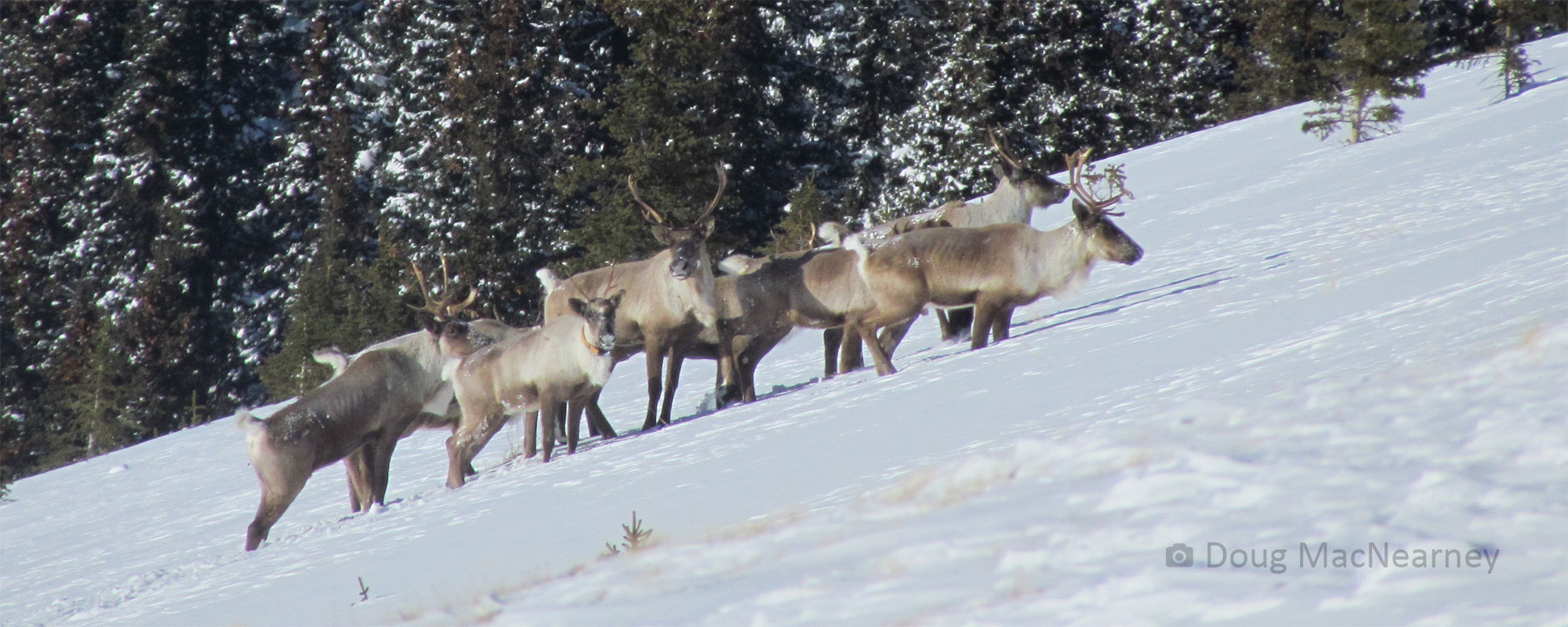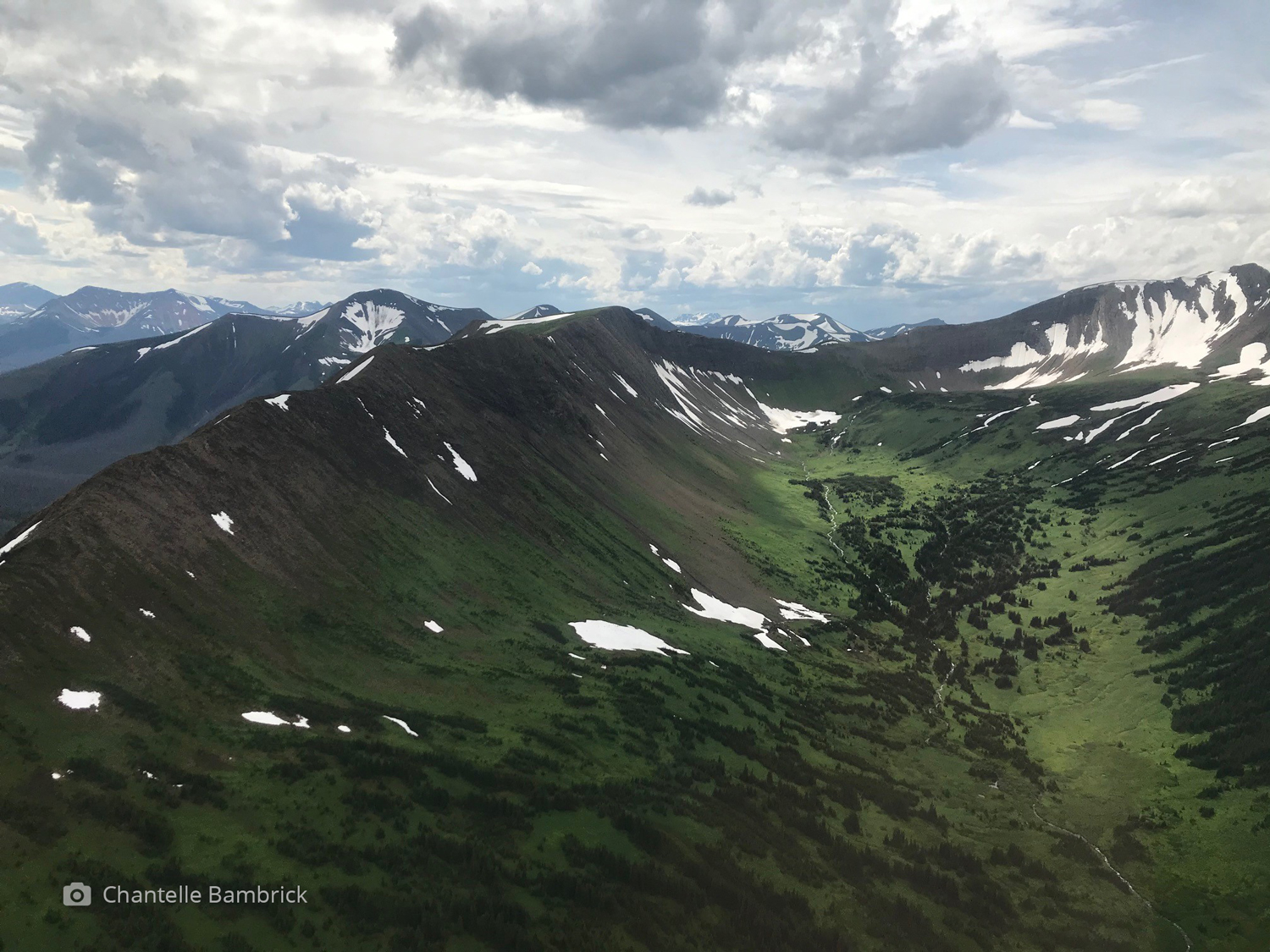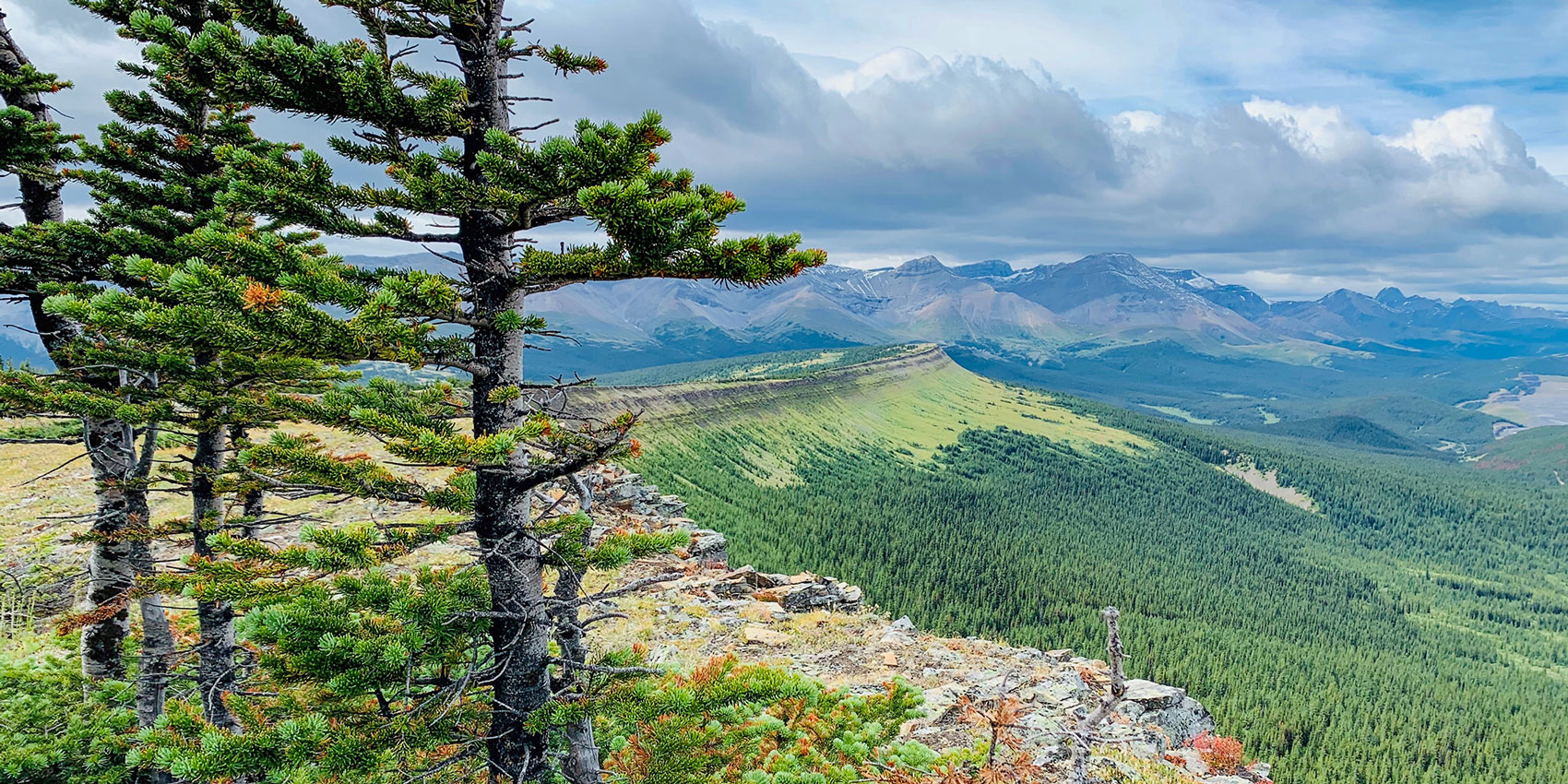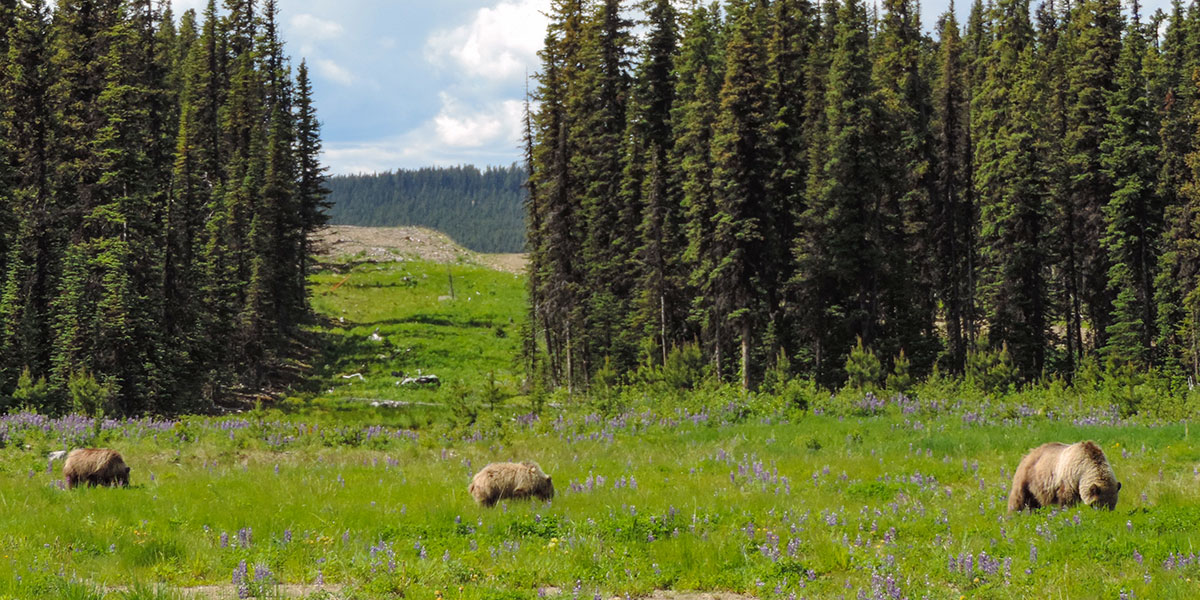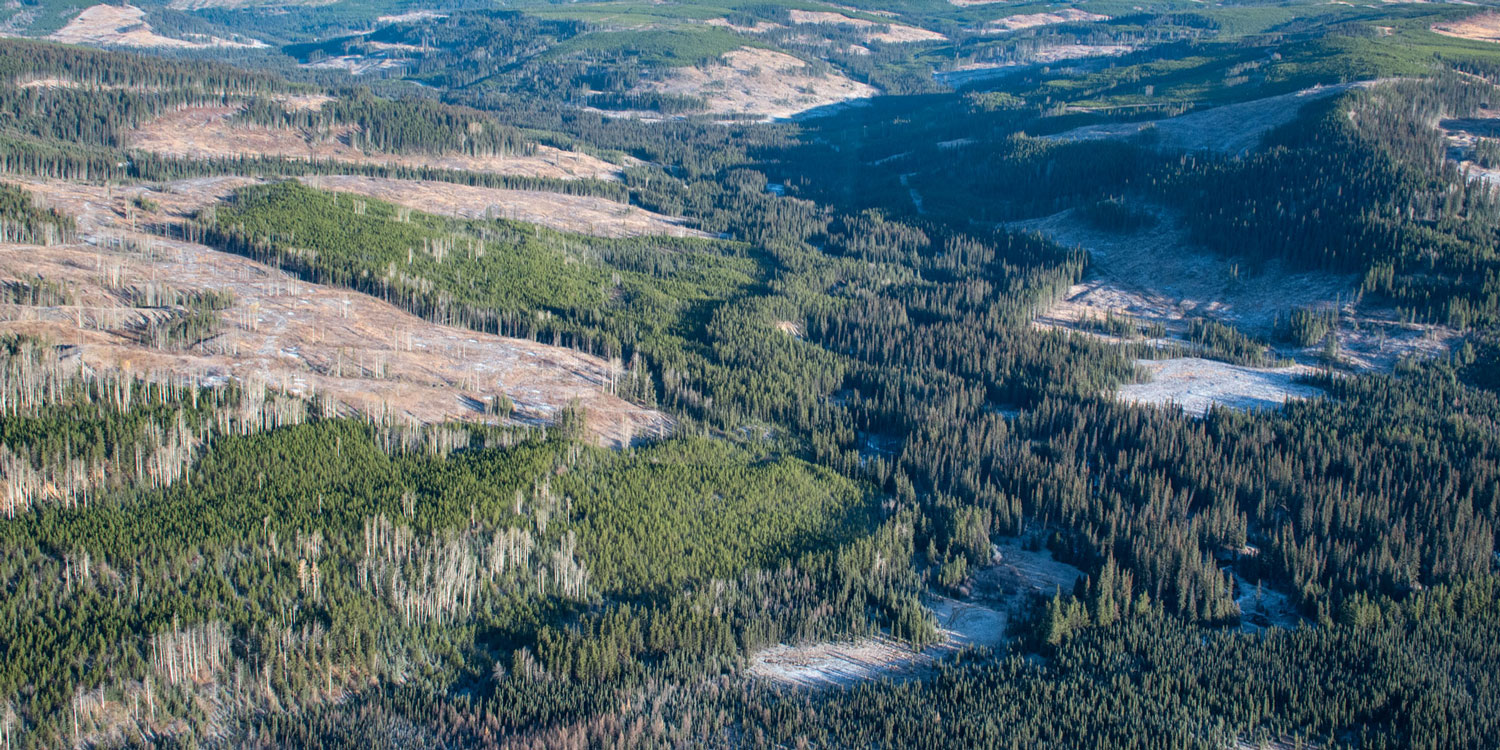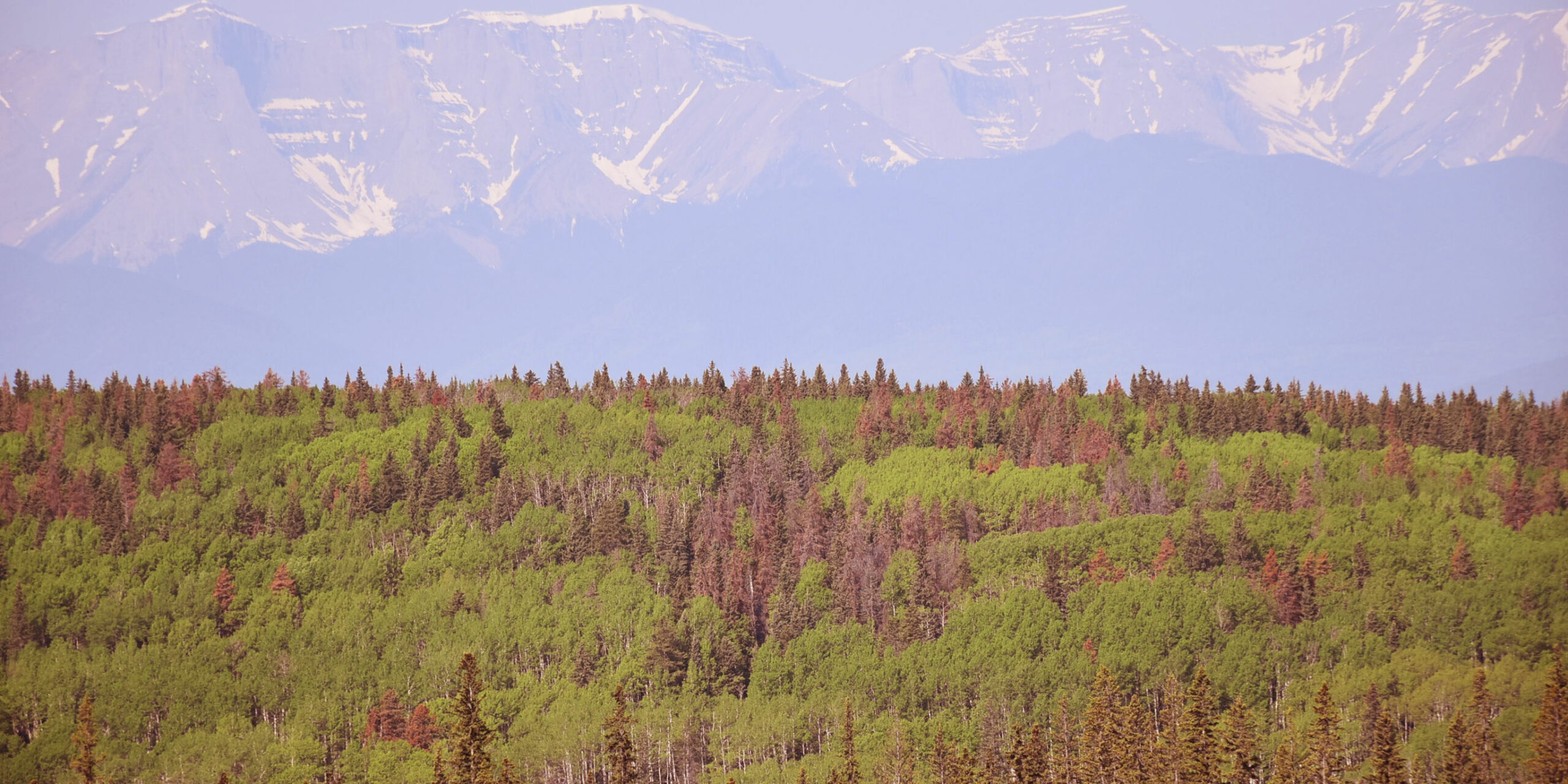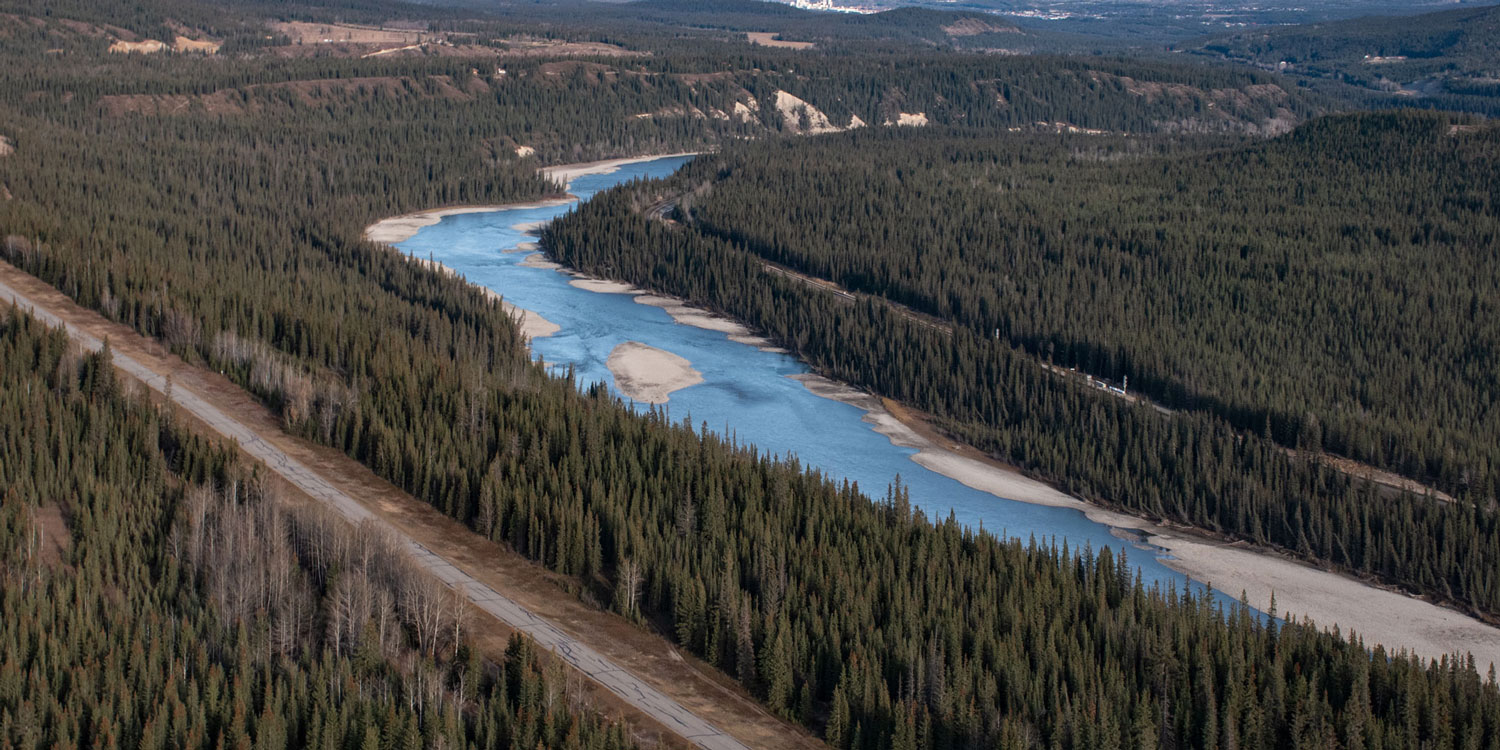
Becky Viejou is halfway through her STIP internship with the fRI Research Caribou Program. STIP – the Science and Technology Internship Program – is an investment by Natural Resource Canada in young researchers.
These internships have been a productive partnership between NRCan and fRI Research many times in the past, and Becky’s has been no exception. She has gained experience on the field crew driving the rough roads in remote areas, doing helicopter work, identifying vegetation and doing forensics on dead caribou – all of which contributed to the Caribou Program’s successful field season.
The Caribou Program worked in Chinchaga caribou range in northwest Alberta, studying how humans and wildlife are using seismic lines and other linear features. Becky and the field crew looked for scat, rub trees, animal tracks, and on the human side, quad trails, flagging tape and old cut blocks.
Different species use linear features to travel, hunt and forage. The goal of this project is to determine how usage by wildlife and humans changes in relation to attributes of linear features such as vegetation height and topography. Once these “gradients of usage” are known, we can better understand the effect on threatened species like grizzly bears and caribou.
The camping gear is now packed away, but Becky’s one-year internship continues as she digs into the data she helped collect, as well as a movement ecology literature review.
“I’ll definitely get lots of experience with statistics,” says Becky. “I’ll get to use stats like ordinal regression for the first time, as well as lots of spatial analysis. Other people are available for feedback if I need it, but I like how self-directed the analysis has been.”
“All in all, it’s a great mix of field and office work. The field work keeps me excited and energized, and the analysis keeps me focused on an interesting biological problem.”
fRI Research can offer new scientists these experiences because we’re a multidisciplinary organizations with expertise in many related fields. We also have partnerships with academia, government and industry. Becky isn’t underestimating the value of making contacts with the broader scientific community.
“One of the biggest benefits has been the networking I’ve done with other researchers. I know that will be really helpful for finding fulltime employment in science,” she says.
Her passion for science and field work is a great fit for an applied science organization like fRI Research. As interesting as the data is, Becky’s favourite part has been working out in remote wilderness.
“I’m really hoping I’ll get back out to the field before my internship is over.”

